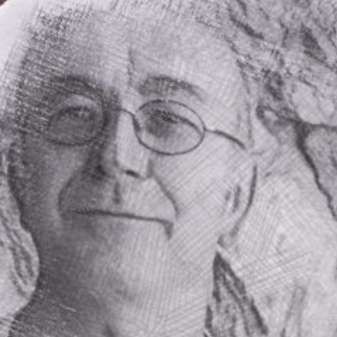Symposium Hall is a new 158-seat church conversion venue in Edinburgh’s attractive Hill Square. Its mix of tradition and newness made a fitting venue for the final date in Svara-Kanti’s UK tour. Encoded in the name (svara = sound/notes and kanti = beauty) is the group’s raison d’être; the new territory to be found in the marriage of Indian and Western instruments and traditions. Led by classical guitarist and tireless seeker Simon Thacker, the group presented a programme of commissions, arrangements and original compositions.
Seated in the front row was Scottish composer Nigel Osborne. The movements of his suite The Five Elements are based on ether, air, water, fire and earth as described in the Hindu Upanishads. The resulting slow-fast-slow-fast-slow structure features a Sanskrit text which was movingly sung by Japjit Kaur. What the Western instrumentalists bring to the project is more than the interpretation of a written part. Violinist Jacqueline Shave, also leader of Britten Sinfonia, shone in some very affecting passages which were improvised on the raga of the movement. Thacker nicely defined a raga as “more than a scale but less than a melody”. The central movement had tabla player Sarvar Sabri reaching for his waterphone (invented by Richard Waters). This instrument’s mesmerising sound involves bowing its variously sized metal rods and allowing the sound to be modulated by water moving inside the metal pan at its base.
Destined perhaps forever to be labelled a minimalist pioneer, Terry Riley’s musical interests are diverse, and he has studied with Hindu musician Pandit Pran Nath for 30 years. He also has a son who is a classical guitarist, which makes him an obvious choice for a commission. Riley’s SwarAmant (a neologism meaning “Lover of musical sounds”) was introduced as a “concerto for three”. Unusually, it features a fully notated tabla part. As far as this engaging piece is from In C, I could detect Riley’s voice. It was certainly a vigorous virtuoso workout for all three who, in its 15-minute course, gave a very good account of themselves.
The evening’s final commission was by Boston-based composer Shirish Korde, whose “sonic meditation” Anusvara 6th Prism featured many aspects of Indian musical culture: “alap”, where the notes of the raag slowly unfold during unmetred improvisatory passages, “jor”, the ancient Dhrupad rhythmic vocal style which contrasts with alap, and a “shruti box”, providing an atmospheric and grounding tonic drone throughout. Based on the Rohini raag, the flattened sixth degree of the scale made for some very poignant phrases, beautifully played by Jacqueline Shave.
The programme’s lengthier pieces were punctuated by much lighter songs, arranged by Thacker. Main Tenu Yaad Aavanga, a Punjabi love song by Asa Singh Mustana and Surinder Kaur, had a simple charm. Ironically, its triadic harmony qualified it as the evening’s most Western-sounding item. Narinder Biba’s Khanu Marda Chandariya Chamka advised all males present to treat their girls well. The lightest of the three, which served as encore, was Surinder Kaur’s Sava Ghund Chuk Ke. The range of Japjit Kaur’s vocal style was thrown into relief in her ability to alternate between these popular songs and the more serious items.
The quest for new musical territory has edged Thacker into composition and this programme featured three of his pieces. Dhumaketu (“Great Comet”), which opened the programme, featured a virtuoso guitar introduction. Wisely, in my view, Thacker retained the improvisatory urgency of Indian musical culture and this piece contains space for extemporisation on tabla and guitar respectively. What impressed me about this piece was that there was no distinction in tightness between composed and improvised passages. Svaranjali (“Tonal offerings”), the programme’s only duo, featured catchy guitar-tabla conversations. The pairing of classical guitar and tabla seems so natural that it’s surprising it hasn’t been used more often in the past.
It’s a chicken-and-egg issue but part of what makes Western music sound Western is the instruments. A natural hybrid of East and West perhaps does not lie easily on a guitar. One solution is alternative tunings. The one which best suits the raag at the core of Thacker’s Multani converts the standard tuning of E–A–D–G–B–E to D–A–D–G–B flat–E flat. This extraordinary situation, where the pitch of half the instrument is unreliable, requires major rewiring of a lifetime’s habits. This was nowhere apparent in this piece. Thacker threw himself into it as though it were home soil. It is this sort of courage, together with the dedication to make the unnatural familiar, that results in extraordinary musical projects like this. I sensed from the musical communication between the very impressive individuals involved that they know they are onto something special. I expect great things in the future.


